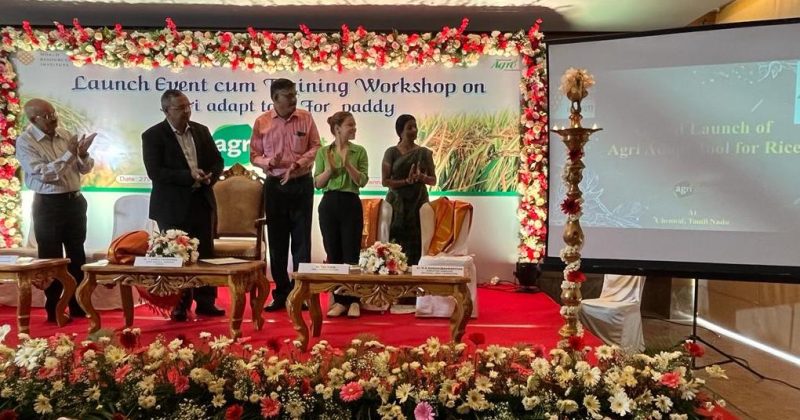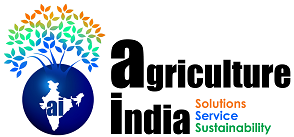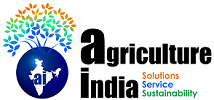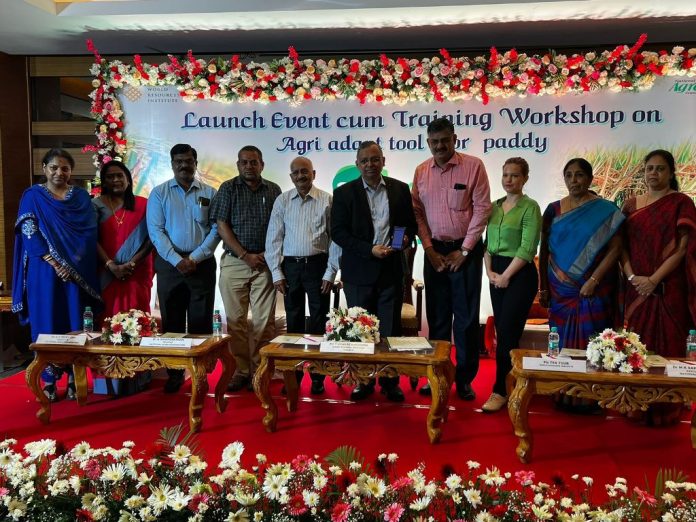Chennai, 27 September 27 (Agriculture India) World Resources Institute (WRI), in collaboration with the National Agro Foundation (NAF), has developed ‘Agri Adapt’, a free online tool that helps agricultural stakeholders better understand the risks, exposure, vulnerabilities and challenges derived from climate change, in an effort to facilitate better decisions by farmers and the entire agriculture value-chain.
The tool will support the stakeholders acquire a deeper understanding of conditions that impact their facilities and assets and make more informed business decisions.
Today, the first version of Agri Adapt was presented before a range of local participants in Chennai, including potential on-the-ground users, rice farmers and the value-chain stakeholders. In a day-long session, WRI and NAF engaged with the agricultural stake holders implemented the tool and sought feedback and insight from the users. The feedback will be used to improve the tool for a second phase that includes additional analysis features for more crops around the world.
Agriculture is a major economic activity making up 16.8% of India’s gross domestic product. About 60.5% of the country’s land is used for agricultural activities and 70% of its rural households still depend primarily on agriculture for their livelihood, with 82% of farmers being small and marginal.
However, this vital economic activity faces several challenges, including a likely 50% increase in global demand for food between 2010 and 2050. This is exacerbated by the threat imposed by climate change, which is expected to increase food prices, reduce food availability, and reduce the incomes and food production of smallholder farmers.
The first version of Agri Adapt was developed in close collaboration with stakeholders in the rice paddy and cotton value-chains to understand their priorities and needs for decision-making. As a result,
Agri Adapt is a data-driven tool that allows users to better understand the challenges of climate change in relation to their business, with verified data on the factors that might disrupt their operations. Inaugurating the tool before the value-chain players, Mr. T Venkatakrishna, Chief General Manager, NABARD, said, “Today climate adaptation is extremely important for our rice farmers and the entire value-chain players. The Agri Adapt tool requires a consultative process which will involve the player to utilize the tool make more precise predictions for better business decisions. Today’s workshop gives us an opportunity to understand the tool better and use it optimally.”

Explaining the tool after its launch, Dr. Nambi Appadurai, director, Climate Resilience Practice program, WRI India, said, “To harness the full benefit of agriculture in a climate impacted world, we have to understand, identify and act on the risks across the agriculture value-chain looking beyond the farm-level production cycle. This Agri Adapt tool is a first step towards making the agriculture sector more resilient,”. The Agri Adapt tool was also introduced to the cotton farmers and other stakeholders in Guntur, Andhra Pradesh, on Friday, 24 September 2022.
Agri Adapt’s beta version focuses on three crops that are important commodities globally: coffee in Colombia, and rice paddy and cotton in India. For each crop the tool includes a ‘Narrative’ page that tells
The story of how the value-chain could be impacted by climate change, considering their unique needs for each step: inputs, production, processing, and trade. To allow for customized analysis by users, Agri Adapt includes a ‘Map’ page that allows users to visualize and overlay dozens of scientific datasets with the click of a button. They can also use the ‘Multi-Location Analysis Tool’ to explore risk, exposure and vulnerability indicators, selecting multiple locations to get aggregated results specific to their areas of interest. AgriAdapt has been funded by the Walmart Foundation
































